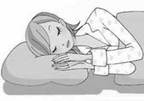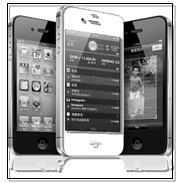题目内容
When I was a child I never said, "When I grow up, I want to be a CEO," but here I am. When I look back on my career, I realize the road to becoming a CEO isn't a straight, clear path. In fact, no two paths are the same. But whether you want to be a boss one day or not, there's a lot to learn from how leaders rise to the top of successful companies.
As this series of stories shows, the paths to becoming a CEO may be different, but the people in that position(位置) share the qualities of commitment(义务), work ethic(道德) and a strong desire for building something new. And every CEO take risks along the way—putting your life savings on the line to start a software company or leaving a big business to be one of the first employees at a startup.
I grew up in Minnesota, and learned how to be an entrepreneur(企业家)from my father, who has run a small business for almost 30 years. I went to Georgetown University and tried a lot of business activities in college with success. And I always had a dream job pattern(模式): to walk to work, work for myself and build something for consumers(顾客).
I'm only 29, so it's been a quick ride to CEO. Out of college, I worked for AOL as a product manager, then moved to Revolution Health and ran the consumer product team. In mid-2007 I left Revolution Health and started LivingSocial with several other workmates, where I became a CEO.
Career advice: Don't figure out where you want to work, or even what industry you'd like to work at. Figure out what makes you do so. What gives you a really big rush? Answer why you like things, not what you like doing. . . and then apply it to your work life. Also, just because you're graduating, don't stop learning. Read more books than you did in college. If you do, and they're not, you're really well-positioned to succeed in whatever you do.
小题1:What can we know from the first paragraph?
小题2:According to the writer, successful CEOs should _____.
小题3:What can we know about the writer from the passage?
小题4:What does the underlined phrase “figure out” mean? ______.
小题5:Which of the following proverbs may the writer agree with according to the last paragraph?
As this series of stories shows, the paths to becoming a CEO may be different, but the people in that position(位置) share the qualities of commitment(义务), work ethic(道德) and a strong desire for building something new. And every CEO take risks along the way—putting your life savings on the line to start a software company or leaving a big business to be one of the first employees at a startup.
I grew up in Minnesota, and learned how to be an entrepreneur(企业家)from my father, who has run a small business for almost 30 years. I went to Georgetown University and tried a lot of business activities in college with success. And I always had a dream job pattern(模式): to walk to work, work for myself and build something for consumers(顾客).
I'm only 29, so it's been a quick ride to CEO. Out of college, I worked for AOL as a product manager, then moved to Revolution Health and ran the consumer product team. In mid-2007 I left Revolution Health and started LivingSocial with several other workmates, where I became a CEO.
Career advice: Don't figure out where you want to work, or even what industry you'd like to work at. Figure out what makes you do so. What gives you a really big rush? Answer why you like things, not what you like doing. . . and then apply it to your work life. Also, just because you're graduating, don't stop learning. Read more books than you did in college. If you do, and they're not, you're really well-positioned to succeed in whatever you do.
小题1:What can we know from the first paragraph?
| A.The writer hasn't achieved his childhood ambition. |
| B.The writer thinks there is some easy way to become a CEO. |
| C.The writer had an ambition of becoming a CEO in his childhood. |
| D.The writer believes success stories of CEOs can be beneficial(有益的) to everybody. |
| A.try not to take risks | B.stay in the same business |
| C.have a strong sense of creativity | D.save every possible penny |
| A.He started LivingSocial when he was still a student of Georgetown University. |
| B.He used to run the consumer product team for AOL. |
| C.His business activities at college ended up in more failure than success. |
| D.His father had far-reaching influence on him. |
| A.断定 | B.弄清 | C.理解 | D.领会 |
| A.Well begun is half done. |
| B.Everything comes to him who waits. |
| C.Time and tide wait for no man. |
| D.One is never too old to learn. |
小题1:D
小题2:C
小题3:D
小题4:A
小题5:D
试题分析:这篇短文主要介绍了想要成为一名成功的CEO所要 具有的品质。
小题1:根据第一段But whether you want to be a boss one day or not, there's a lot to learn from how leaders rise to the top of successful companies. 描述,可知作者认为执行总裁们的成功故事对每个人都有好处。故选D。
小题2:根据第二段and a strong desire for building something new.描述,可知执行总裁们必须有强烈的创新意识。故选C。
小题3:根据I grew up in Minnesota, and learned how to be an entrepreneur(企业家)from my father, who has run a small business for almost 30 years.描述,可知他的父亲对他有深远的影响,故选D。
小题4:联系下文描述,可知此处指的是不要说你想去哪儿工作,或者你想在什么企业工作。故选A。
小题5:Well begun is half done.良好的开端是成功的一半;Everything comes to him who waits. 坚持就是胜利;Time and tide wait for no man.岁月不等人;One is never too old to learn.活到老学到老。根据最后一段Also, just because you're graduating, don't stop learning.可知作者认为,人永远不该停止学习,故选D,活到老学到老。
点评:对于文章中的细节题,要注意文章中的细节的理解。推断题测试考生在阅读基础上的逻辑推理能力,要求考生根据文章所述事件的逻辑关系,对未说明的趋势或结局作出合理的推断;或根据作者所阐述的观点理论,对文章未涉及的现象、事例给以解释。考生首先要仔细阅读短文,完整了解信息,准确把握作者观点。

练习册系列答案
相关题目

